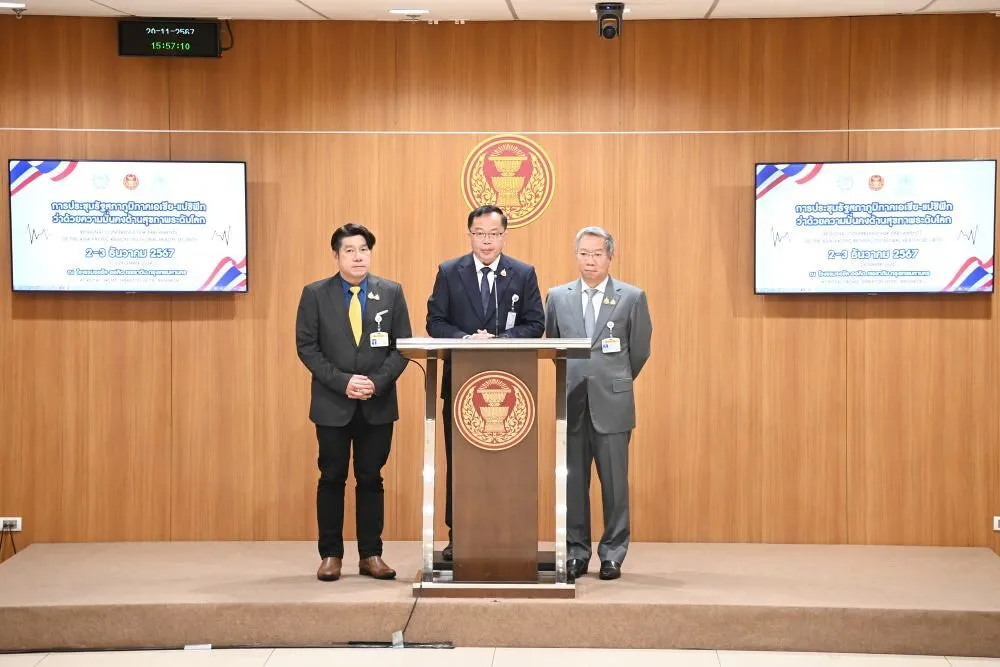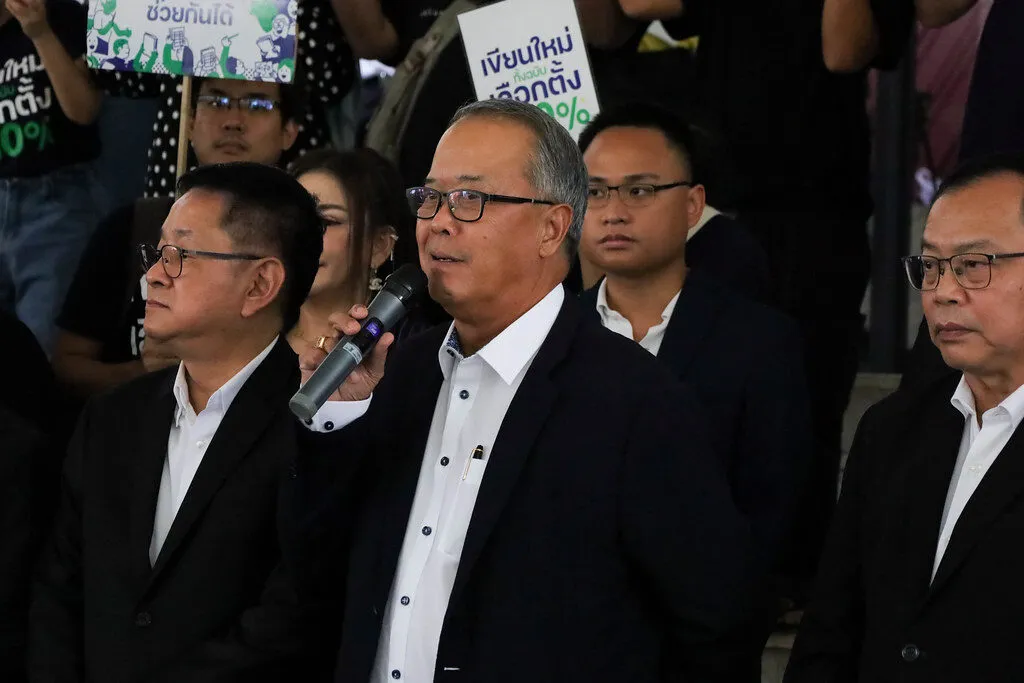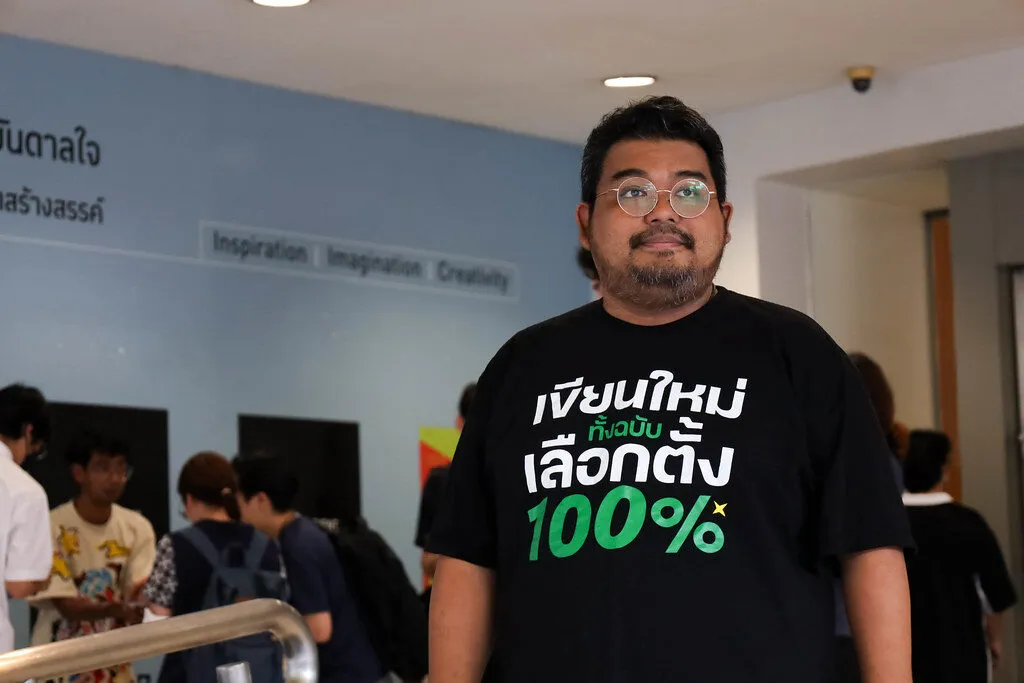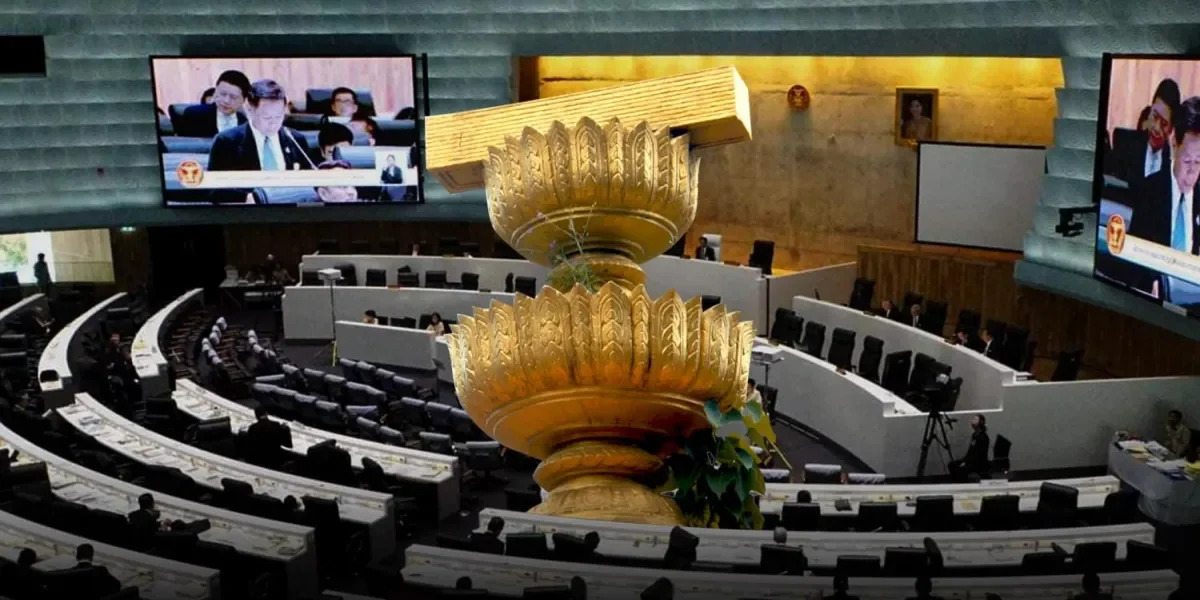Thais may now have to wait up to six months before the Referendum Act can be amended, after the joint committee of the Senate and the House of Representatives voted to retain the double majority requirement for referendums, and this may also delay the process of amending the Constitution.

The 2021 Referendum Act stipulates that for a referendum to pass, a double majority – a turnout of more than half of all eligible voters, at least half of whom vote in favour – is required. On 21 August, the House of Representatives passed an amendment to the Act removing the need for a double majority. The amendment was proposed on the grounds that requiring a double majority would make it almost impossible for a referendum to succeed by allowing those seeking a ‘no’ vote to organise a boycott.
The bill was then forwarded to the Senate, who voted on 30 September to amend the bill re-instating the double majority. In spite of a push by Bhumjaithai MPs to support the Senate’s position, the House responded on 9 October by voting 345 to 0, with 65 abstentions, to reject the Senate’s changes.
A joint committee was then formed to propose a new version of the bill. Last Wednesday (20 November), it voted 13 to 9 in favour of requiring a double majority.
The bill will now be returned to the House and the Senate for another reading. If it is not approved by both houses, it will be put on hold for 180 days and cannot be proposed again during this time. After the 180 days have lapsed, the House of Representatives may hold another vote to pass the original draft. The bill will go before the House and the Senate once the session resumes in mid-December.
Senator Wuttichart Kalayanamit said that the senators on the committee voted in favour of a double majority requirement because they believe that constitutional amendments are an important matter and need a high voter turnout. He asks that people participate in the constitutional amendment referendums because the public will benefit directly.
Voting by post has reportedly been considered as an option by the committee. Senator and Senate Chief Whip Pisit Apiwattanapong said that representatives of the Election Commission of Thailand (ECT) and Thailand Post were summoned to speak to the committee, and that Thailand Post representatives said the company is capable of handling postal voting. They proposed that voters be required to register at a local post office to prevent fraud, and although it could cost as much as 1 billion baht, postal voting would make it easier for people to participate in referendums since they won’t have to travel to their hometowns to vote. Meanwhile, the ECT representatives did not commit to organizing postal voting, but said that they will consider the possibility.
Delaying the amendment of the Referendum Act necessarily means delaying constitutional amendments. Nutchapakorn Nummueng from the Constitution Advocacy Alliance (CALL) believes the House is unlikely to approve the double majority requirement. As a result, the bill will be put on hold and cannot be proposed again until mid-2025, so the first referendum on constitutional amendments cannot take place in February 2025 as originally anticipated.

Meanwhile, Chusak Sirinil, Pheu Thai Deputy Leader and Prime Minister’s Office Minister, said that the constitutional amendment process cannot be completed within the government’s term if 3 referendums are required and parliament needs to wait 180 days to pass amendments to the Referendum Act. He noted that he interpreted the bill amending the Referendum Act as finance-related legislation because a referendum costs money, and under the Constitution, the wait would be shortened to 10 days if the bill is deemed finance-related.
Chartthaipattana Party MP Nikorn Chamnong, the committee’s secretary, disagrees. Although he told Matichon Onlinethat it would be good to pass the referendum bill quickly so that constitutional amendments would not be delayed any further, it would not be possible to shorten the wait time by interpreting the bill as finance-related. He noted that the House previously informed the Senate that the bill is not finance-related, and the House could not go back on its decision without running the risk of a complaint that the bill was issued unlawfully.

Although it now looks like the road to constitutional amendments has got even longer, Nutchapakorn said there is still a chance of amending the Constitution before the government’s term ends. If only 2 referendums are held and parliament gets started with amending Section 256 of the Constitution while the referendum bill is on hold, he said, the first referendum could be held within 2025 after the bill is passed. A Constituent Assembly could then be formed in 2026 and a second referendum conducted in 2027 to approve the new Constitution.
Nutchapakorn said that the question now is when House Speaker Wan Muhamad Noor Matha will put the amendment of Section 256 of the Constitution, which is required before a Constituent Assembly can be formed, on the parliamentary agenda.
The proposal was left off the agenda because parliament’s legal advisors said it would go against a previous ruling by the Constitutional Court. People’s Party MP Parit Wacharasindhu, Chair of the House Committee on Political Development, Mass Communications and Public Participation, said that he was told during an informal discussion with the President of the Constitutional Court that only 2 referendums are needed: one before and one after constitutional amendments.
Another concern for Nutchapakorn is whether Bhumjaithai Party MPs and the Senate can be convinced to agree with amending the Constitution by an elected Constituent Assembly. He noted that the majority of the Senate, said to be linked to Bhumjaithai’s network, has been responsible for delaying the process, from delaying the formation of the joint committee to continuing to insist on requiring a double majority although they should have known this would mean the bill would be put on hold. It has been noted that senators often vote in the same direction as Bhumjaithai MPs, Nutchapakorn said.
Nutchapakorn said, however, that he does not believe that Bhumjaithai does not want to amend the Constitution, but he is concerned that it would try to interfere with the process. He said that the government should put more pressure on the Party if it proves to be an obstacle, but he is unsure how successful that will be, since the government’s stability is still questionable.
He also said that civil society should put pressure on the Senate and figure out how to ensure that the public can play a role in drafting a new Constitution. A civil society movement and media interest could push the process forward, he said.


